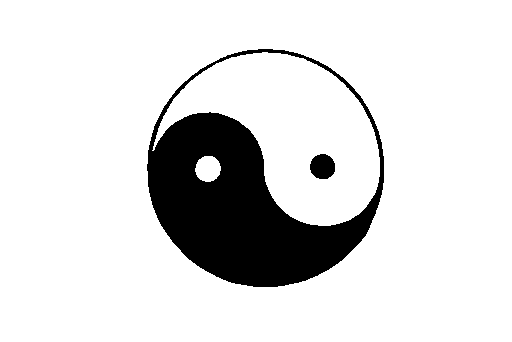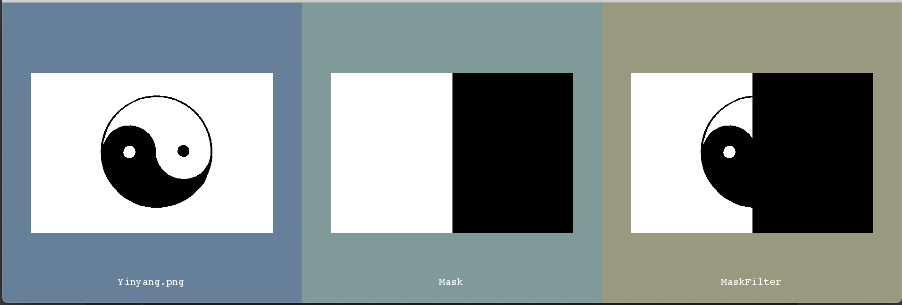Mask Image#
Synopsis#
Apply a mask to an image.
Results#

Input Image#

Output In VTK Window#
Output:
Image (0x7f9d9c95ccc0)
RTTI typeinfo: itk::Image<unsigned char, 2u>
Reference Count: 2
Modified Time: 235
Debug: Off
Object Name:
Observers:
none
Source: (none)
Source output name: (none)
Release Data: Off
Data Released: False
Global Release Data: Off
PipelineMTime: 0
UpdateMTime: 0
RealTimeStamp: 0 seconds
LargestPossibleRegion:
Dimension: 2
Index: [0, 0]
Size: [512, 342]
BufferedRegion:
Dimension: 2
Index: [0, 0]
Size: [512, 342]
RequestedRegion:
Dimension: 2
Index: [0, 0]
Size: [512, 342]
Spacing: [1, 1]
Origin: [0, 0]
Direction:
1 0
0 1
IndexToPointMatrix:
1 0
0 1
PointToIndexMatrix:
1 0
0 1
Inverse Direction:
1 0
0 1
PixelContainer:
ImportImageContainer (0x7f9d9c95d000)
RTTI typeinfo: itk::ImportImageContainer<unsigned long, unsigned char>
Reference Count: 1
Modified Time: 236
Debug: Off
Object Name:
Observers:
none
Pointer: 0x7f9d90050000
Container manages memory: true
Size: 175104
Capacity: 175104
Code#
C++#
#include "itkConfigure.h"
#include "itkImage.h"
#include "itkImageFileReader.h"
#include "itkMaskImageFilter.h"
#include "itkImageRegionIterator.h"
#ifdef ENABLE_QUICKVIEW
# include "QuickView.h"
#endif
using ImageType = itk::Image<unsigned char, 2>;
void
CreateHalfMask(ImageType::Pointer image, ImageType::Pointer & mask);
int
main(int argc, char * argv[])
{
if (argc < 2)
{
std::cerr << "Usage: " << argv[0] << " filename" << std::endl;
return EXIT_FAILURE;
}
const auto input = itk::ReadImage<ImageType>(argv[1]);
auto mask = ImageType::New();
CreateHalfMask(input, mask);
using MaskFilterType = itk::MaskImageFilter<ImageType, ImageType>;
auto maskFilter = MaskFilterType::New();
maskFilter->SetInput(input);
maskFilter->SetMaskImage(mask);
mask->Print(std::cout);
#ifdef ENABLE_QUICKVIEW
QuickView viewer;
viewer.AddImage(input.GetPointer(), true, itksys::SystemTools::GetFilenameName(argv[1]));
std::stringstream desc;
desc << "Mask";
viewer.AddImage(mask.GetPointer(), true, desc.str());
std::stringstream desc2;
desc2 << "MaskFilter";
viewer.AddImage(maskFilter->GetOutput(), true, desc2.str());
viewer.Visualize();
#endif
return EXIT_SUCCESS;
}
void
CreateHalfMask(ImageType::Pointer image, ImageType::Pointer & mask)
{
ImageType::RegionType region = image->GetLargestPossibleRegion();
mask->SetRegions(region);
mask->Allocate();
ImageType::SizeType regionSize = region.GetSize();
itk::ImageRegionIterator<ImageType> imageIterator(mask, region);
// Make the left half of the mask white and the right half black
while (!imageIterator.IsAtEnd())
{
if (imageIterator.GetIndex()[0] > static_cast<ImageType::IndexValueType>(regionSize[0]) / 2)
{
imageIterator.Set(0);
}
else
{
imageIterator.Set(255);
}
++imageIterator;
}
}
Classes demonstrated#
-
template<typename TInputImage, typename TMaskImage, typename TOutputImage = TInputImage>
class MaskImageFilter : public itk::BinaryGeneratorImageFilter<TInputImage, TMaskImage, TOutputImage> Mask an image with a mask.
This class is templated over the types of the input image type, the mask image type and the type of the output image. Numeric conversions (castings) are done by the C++ defaults.
The pixel type of the input 2 image must have a valid definition of the operator != with zero. This condition is required because internally this filter will perform the operation
if pixel_from_mask_image != masking_value pixel_output_image = pixel_input_image else pixel_output_image = outside_value
The pixel from the input 1 is cast to the pixel type of the output image.
Note that the input and the mask images must be of the same size.
- Warning
Any pixel value other than masking value (0 by default) will not be masked out.
- See
MaskNegatedImageFilter
- ITK Sphinx Examples:
